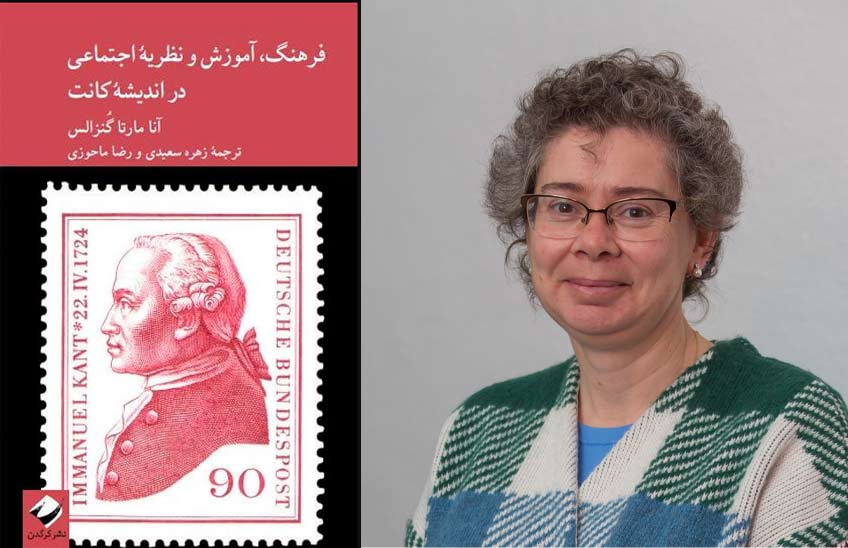Kant's philosophical bequest reaches Iran: a book published in Persian with works by the researcher Ana Marta González
In addition, another Issue of the professor of department of Philosophy and researcher of Institute for Culture and Society comes out in April, edited in English by Palgrave.

FotoManuel Castells/<br>La profesora Ana Marta González y la portada de su nuevo libro.
18 | 02 | 2021
The Iranian publishing house Kargadan Publishing House has published a book in Persian with articles on the German philosopher Emmanuel Kant written by Ana Marta González. a book in Persian with articles on the German philosopher Emmanuel Kant written by Ana Marta Gonzálezprofessor at department of Philosophy and researcher at Institute for Culture and Society (ICS) of the University of Navarra.
The Issue collects the Persian translation of three papers that originally appeared in English in international scientific journals, Archiv für Rechts- und Sozial Philosophie, Kant Studien and The Journal of Philosophy of Education. The initiative was taken by Reza Mahoozi and Zohreh Saeedi, who have been responsible for the translation. As a curiosity, the year of publication is that of the Iranian Persian calendar, 1399.
work The introduction is titled Exploring the human realm: Reason's reflective work under the sign of hope. The author notes in it that the three major themes she addresses, namely the shaping of a culture articulated around respect for human freedom, the seeds of modern social theory, and the aspiration to develop a science of Education that contributes to the progress of humanity, "provide abundant material for understanding the potential of her philosophical bequest ."
From agreement with Professor Gonzalez, Kant and a Culture of Freedom "works out the meaning of this unmistakably modern expression from a Kantian perspective and the role of law and virtue in shaping a culture articulated around respect for human freedom".
Freedom, social theory and the science of Education
In Kant's Contribution to Social Theory, he reveals "some of the reasons why Kant has become an inspiration to the founding fathers of social theory," he says. In his view, "although not generally counted among the forerunners of the social sciences," Kant had a great influence on them. "He laid the instructions for the later discussion of the difference between the human and natural sciences," he adds. "His work ," he continues, "is also rich in substantive contributions to social theory articulated around his conception of culture and cultural progress.
The last one is Kant's Philosophy of Education: Between relational and systemic approaches (The Philosophy of the Education in Kant: between relational and systemic approaches ). In it, the researcher analyzes the Kantianapproach of the Education in the context of his Philosophy of culture and history, "as a process whose direction must be reflexively assumed by human freedom in the light of man's moral vocation". In this context, he says, "some of the characteristic tensions associated with his enlightened approach of the Education" arise.
Likewise, publishing house Palgrave will publish in April another book by this professor at department of Philosophy and researcher at Institute for Culture and Society, which will include articles by her in English originally written at Spanish. It is entitled Kant on Culture, Happiness and Civilization.
